Media
Guest lecture titled “New Media, New Society” by Dr. Glenn Muschert, Professor at Khalifa University, UAE.
27 October, 2025
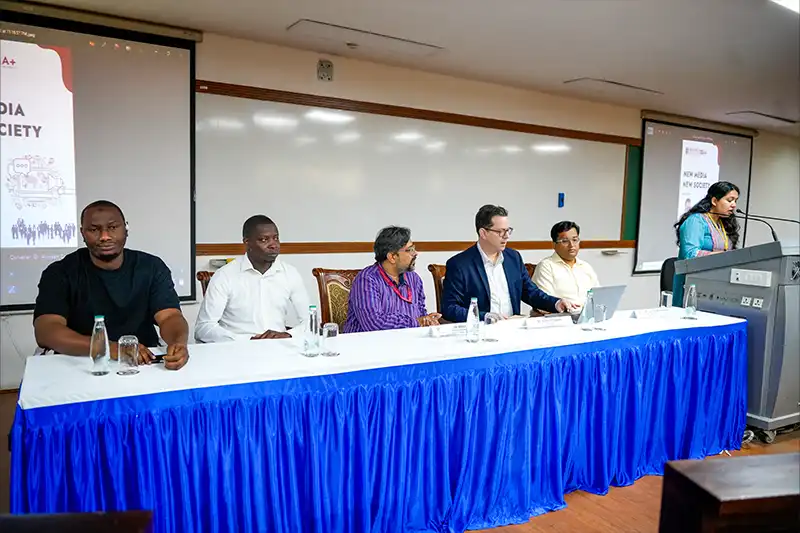
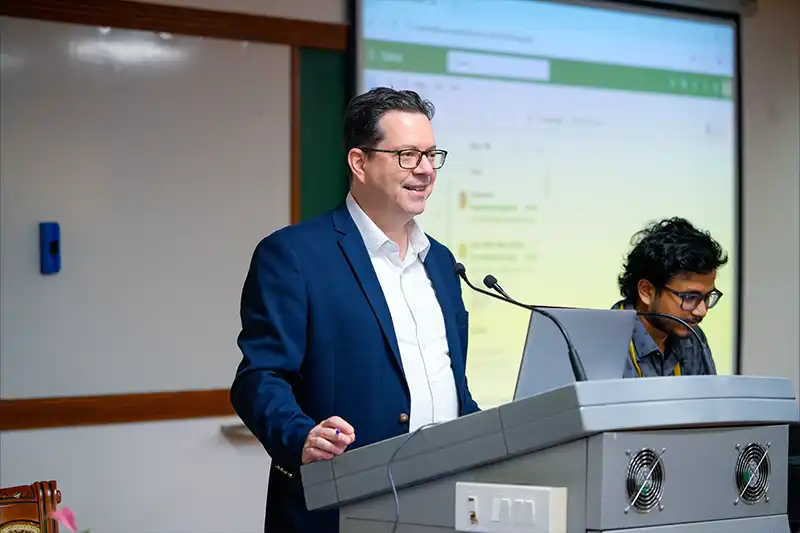
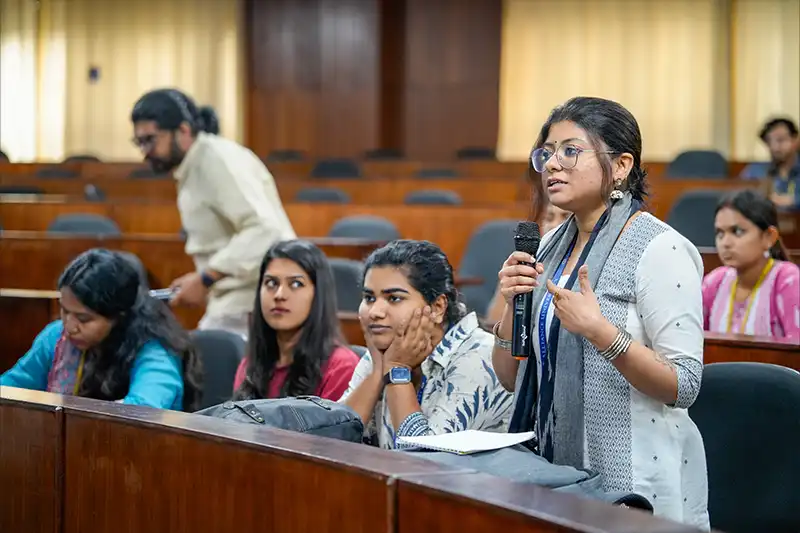
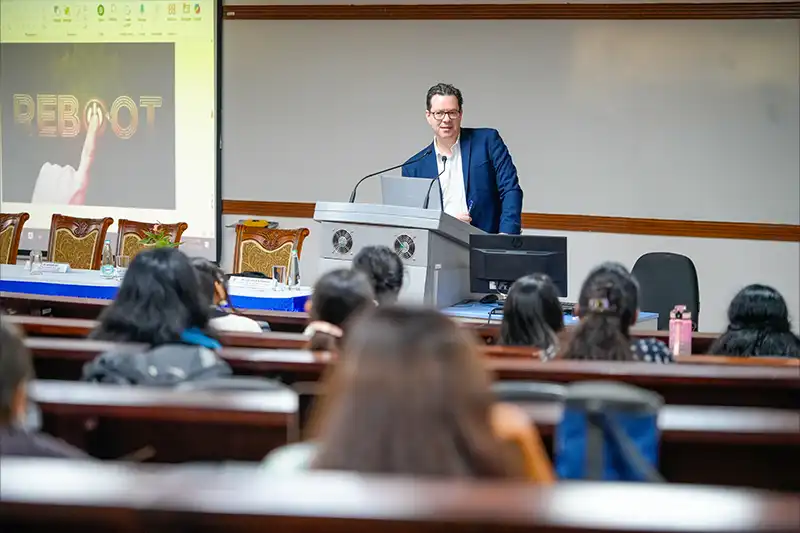
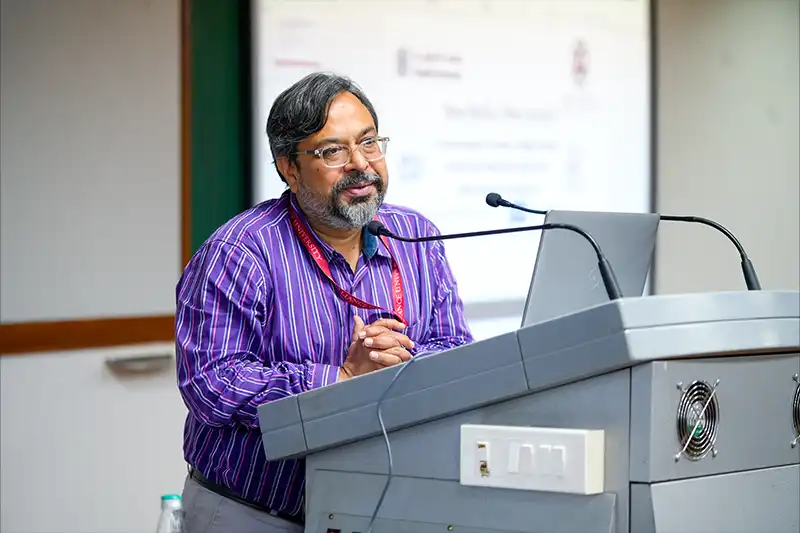
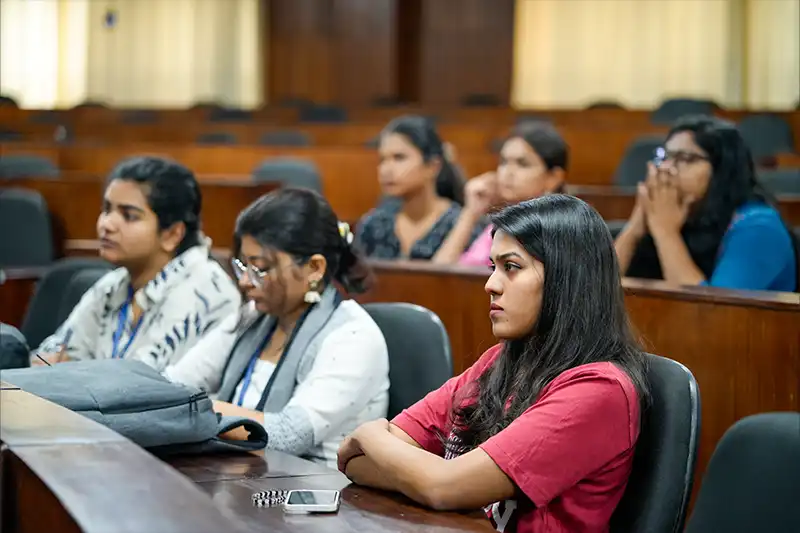
The Centre for Research at the Alliance School of Liberal Arts organised a lecture titled “New Media, New Society” on 27 October 2025. The session formed part of the School’s ongoing efforts to encourage discussion on contemporary social and technological issues. The lecture was delivered by Dr Glenn Muschert, Professor at Khalifa University, UAE, and was convened by Dr Arindam Das, Professor and PhD Programme Director at the Alliance School of Liberal Arts. Post-doctoral fellows, doctoral scholars, and undergraduate and postgraduate students attended the event.
Welcome and Opening Remarks
The session began with Ms Amala Vinod, PhD Scholar, introducing Dr Muschert and outlining his academic contributions. Dr Liju Jacob Kuriakose, Assistant Dean, felicitated the speaker and formally welcomed him to Alliance University. This set the context for a reflective and engaging discussion on the relationship between new media and contemporary society.
Lecture Summary
Dr Muschert opened his lecture by asking a central question: whether new media truly create a new society or simply reshape existing social structures. He invited the audience to think about how emerging technologies influence social relations and how much of this influence represents actual change. Drawing on personal experiences and historical examples, he traced the development of digital media and commented on its growing role in everyday life.
He referred to Arthur C. Clarke’s well-known principles to illustrate how technological progress often appears “magical” to observers of any period. According to Dr Muschert, this sense of wonder continues to shape public expectations of innovation. He emphasised that while technology evolves rapidly, its social implications require careful and thoughtful analysis.
Moving to conceptual concerns, Dr Muschert discussed the need for new theoretical approaches to understand the shifting landscape of media and social interaction. He encouraged scholars to reassess assumptions and adopt perspectives that reflect the realities of an increasingly digital world. He highlighted changes in communication, information production, and interpersonal relations as key areas that require renewed academic attention.
The lecture then turned to current debates on media effects, including simulation, misinformation, balkanisation, and intersectionality. Dr Muschert explained how these issues influence public understanding and behaviour, and how digital technologies act both as stabilising forces and as agents of disruption. He described emerging forms of social interaction—such as virtual communities, influencer cultures, and algorithm-driven relationships—as examples of how identity and connection are being redefined online.
Expanding on Clarke’s ideas, Dr Muschert suggested that media and social theorists must attempt to “uncover the hidden, the misleading, and the deceptive” to better understand the structures that shape mediated societies. He encouraged participants to revisit classical theorists such as Durkheim, Weber, and Goffman, noting that their work continues to offer valuable insights for analysing digital behaviour and community formation.
Towards the end of his lecture, Dr Muschert stressed the importance of integrating traditional and contemporary frameworks to interpret the complexities of digital communication. By bridging older sociological insights with modern media scholarship, he argued, researchers can more effectively examine how technology influences culture and social life.
Discussion and Closing
The lecture was followed by an interactive Q&A session during which participants raised thoughtful questions. Dr Muschert responded to each query with clarity and depth. Dr Arindam Das then felicitated two accompanying guests—Mr Abdou Gibba, a medical practitioner in training, and Mr Abass F. Sonko, a humanitarian. Mr Sonko addressed the audience briefly, reflecting on the longstanding friendship and growing academic ties between India and Gambia.
The event concluded with a Vote of Thanks by Dr Das, who acknowledged Dr Muschert’s contribution and the Centre for Research for organising the session. The lecture offered participants an opportunity to engage with significant questions surrounding new media, social change, and digital interaction, encouraging continued reflection on these themes within the academic community.
